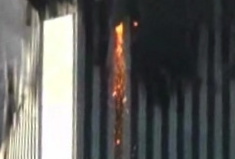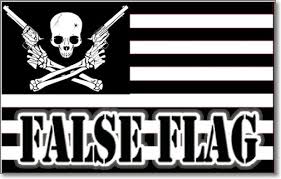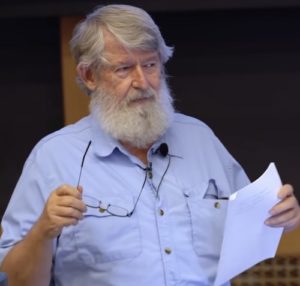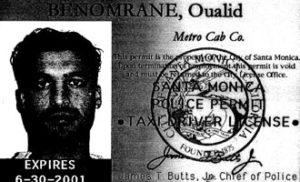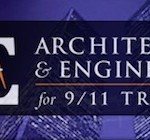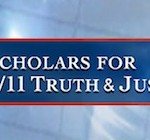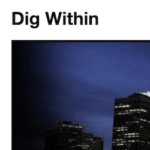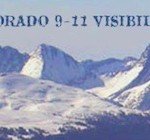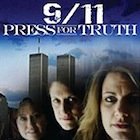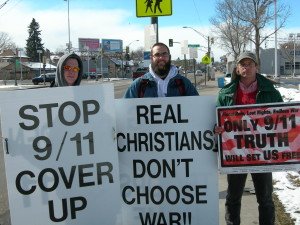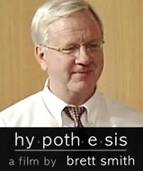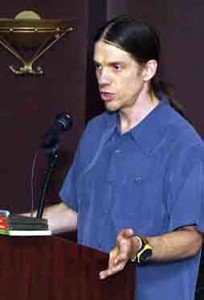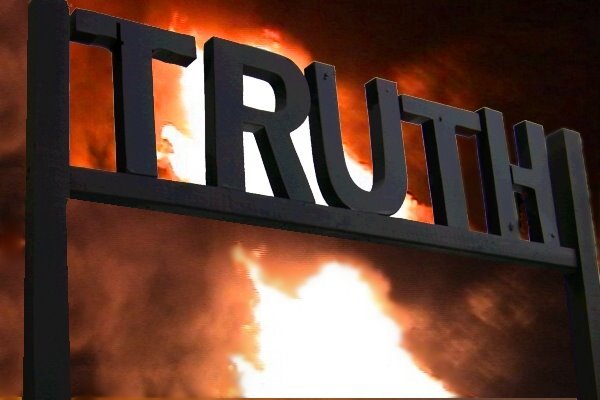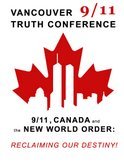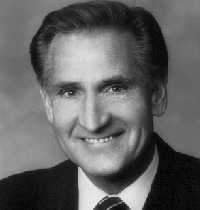The Ombudsman Column
PBS, Yes and No
By Michael Getler
September 25, 2009

What follows is more of a grab bag rather than an ombudsman’s mailbag.
Included are a couple of unusual but not widely known episodes that unfolded last week that I thought might be of interest more broadly to PBS viewers. They can be seen to have at least some association with PBS in the way they were presented or appeared to the public. Yet PBS, as an enterprise, didn’t have anything to do with them.
These things happen because PBS is a strange beast within the world of media. Its hundreds of member stations are all independent and can broadcast what they want, and some of the superstars associated with PBS programs are also forces unto themselves with lots of other interests and outlets. Yet these stations and these superstars are widely perceived, rightly or wrongly, as joined at the hip to PBS in the mind of many viewers.
So these episodes — one involving a member station in Denver and the other involving talk show host Tavis Smiley — struck me as interesting and worthy of sharing beyond the normal back and forth with viewers over the widely viewed and well-known PBS programs that are broadcast nationally and that we all associate with public television.
The Conspiracy Pledge
The first episode involves PBS member station KBDI in Denver, Colo. Earlier this summer and again in mid-August and last weekend, the station ran a series of independent documentary films labeled: “America: Freedom to Fascism,” “9/11: Press for Truth,” and “9/11: Blueprint for Truth.” These films ran as part of a pledge drive by the station to raise funds. These are controversial films that feed conspiracy theories and theorists about the origins and results of the 9/11 attacks. The “Blueprint” film, for example, “offers evidence that all three World Trade Center high-rises were destroyed not by fire and damage, per the official story, but by explosive-controlled demolitions on September 11, 2001,” according to the official blurb describing the film.
In other words, someone wired these buildings with explosives intending to bring them down in this attack, and this has been covered up by the government, the 9/11 Commission and the mainstream media. That’s the message.
Now, America has no shortage of conspiracy-minded people. The Kennedy and Martin Luther King assassinations, and 9/11, all have provoked lingering questions and suspicions and are fair game for many people, even those not inclined to always see conspiratorial forces at work, who believe there is more to these stories than has come out of official investigations. And KBDI, of course, has the right to air unpopular, alternative perspectives on such events. The station bills itself as “Denver’s bold, diverse and independent PBS station.” Its spokesmen say on the air that they are “taking risks,” that viewers don’t have to agree but they are “doing stories outside the mainstream media.” And they say as they did, for example, in presenting the “Blueprint” film, they are the “first TV station in the nation to do this.”
That is undoubtedly true and so far, as far as I can tell, this remains exclusive to KBDI among the 350 or so PBS member stations. I’m not going to review the films, but on a personal level I find the idea embedded in “Blueprint” of a government conspiracy to blow up those buildings to be preposterous and simply beyond belief and I fault the station for promoting this as part of a pledge drive and presenting it without an accompanying on-the-air program in which critics have their say.
PBS actually did make an early stab soon after the attacks at providing some preliminary assessments, explanations and perspective of “Why the Towers Fell” in a NOVA science program on April 30, 2002. That program included this observation from Matthys Levy, author of a book titled “Why Buildings Fall Down.” He said at the time: “It was very much like a controlled demolition when you look at it, because the building essentially fell vertically down, as if someone had deliberately set a blast to take place to cause the building to fall vertically downward.” Levy was making an observation, not offering “evidence,” and there were many other observations presented by inspectors.
Where to Draw the Line?
The programs have not attracted much national media attention. Arts and entertainment columnist Joanne Ostrow, writing in The Denver Post on Aug. 21, said that KBDI “has a reputation for broadcasting bold, distinctive documentaries” but “just where to draw the line between bold/distinctive and kooky/irresponsible is a matter of opinion.” Both the Denver Post article and another on Sept. 8 in Current, the trade newspaper for public television and radio, also noted that “staffing the phones last month were volunteers who adhered to the programs’ assertions that the federal government intentionally allowed the terrorist attacks that brought down the World Trade Center in 2001 and has covered up the deed ever since,” as Current put it.
Station officials quoted by Current said that viewer reaction has run about 4-to-1 in favor of airing the films and that the pledge drives in which they were used have been among the most successful.
As has been pointed out many times, all member stations are independent and can air what they choose, and only programs that bear the PBS logo at the beginning and end identify programming that was distributed and approved by PBS. Officials at PBS said the service had nothing to do with these films and that the station is under no obligation to inform PBS about what it plans to use during fund-raising pledge drives, according to Jan McNamara, director of corporate communications, and decisions about whether to have opposing views or who to use as volunteers are also local, she said.
Another PBS official added this: “KBDI has a long tradition of broadcasting (and sometimes pledging) controversial point of view programs. The fact that they ran them would probably not come as a surprise to many of their viewers. Think of them as more akin to a Pacifica station rather than a traditional PBS station. In markets where there is more than one PBS station they are always trying to differentiate themselves, and broadcasting POV (point of view) programs is one way that KBDI does it.”
These films, of course, don’t carry the PBS logo, but on the on-screen banner during the station’s promotional segment, alongside the station’s logo and the phone number, is the little PBS logo. And certainly some viewers associate this with PBS.
Still Seems Like PBS
Here’s what one viewer from Alpine, Colo., wrote to me last week:
“I have a great respect for PBS and always listen to it when we are in our 2nd home back in Virginia. But I had occasion to listen to the KBDI station out of Denver CO tonight [Sept. 17] and was exposed to this nonsense about 9/11 essentially being a hoax.
“As a career army officer and Vietnam veteran I really do understand the tendency of my government to mould the truth to fit its political needs, but the garbage and pseudo science surrounding this particular PBS sponsored program does the entire PBS community a great disservice. It was presented during a station fund raiser which made it all the more incredible to me. The content was presented from one perspective and the local PBS commentators all but gushed over it as being the ‘truth’ incarnate. They looked out at us viewers with steely eyed sincerity and could have said our landing on the moon or the attack on Pearl Harbor was a government hoax and done it without blinking. Needless to say every conspiracy nut in the Nazi part of Colorado or in range of KBDI feels vindicated and the grassy knoll crowd and UFO buffs will be clamoring for air time. I have never heard such tripe from any PBS station and if you guys have any form of internal review for program content, you might want to give this one a real close examination. Shame on PBS for allowing these loonies to use the PBS moniker.
“I understand and admire PBS stations that are willing to air controversy. That is a good thing! There have been many programs you guys have aired that have had a major influence on helping me form opinions, but normally the more controversial shows provided explanatory comments or hopefully opposite viewpoints, all in the same show however so the listeners could decide for themselves. The folks who run KBDI are a bit ‘off the reservation’ it would seem to me.”
Tavis Smiley Makes a Withdrawal from Wells Fargo
The second episode involved Tavis Smiley, who is a big star on PBS but who also is a force on many other platforms. He owns the popular weeknight “Tavis Smiley” talk show he hosts on PBS, raises the money for it and has many other independent involvements. One of those outside interests came back to bite him earlier this month yet it seemed natural that his prominence on PBS is what probably most defines him to the public.
The headline above the online story on Sept. 17 by The Washington Independent said: “Suit Alleges Trusted Blacks Drew Minorities to High-Rate Loans.” The story by reporter Mary Kane began: “As the housing market began booming in the mid-2000s, Wells Fargo & Co. teamed up with prominent African American commentator and PBS talk show host Tavis Smiley and financial author Kelvin Boston, the host of ‘Moneywise,’ a multicultural financial affairs show, to host something called ‘Wealth Building’ seminars in black neighborhoods.”
Smiley was the keynote speaker and the big draw, Kane reported, with standing room only crowds in several cities. “But,” she wrote, “what appeared on the surface as a way to help black borrowers build wealth was actually just the opposite, according to a little-noticed explanation of the ‘Wealth Building’ seminar strategy, contained in a lawsuit recently filed by Illinois Attorney General Lisa Madigan.
“Wells’ plan for the seminars all along was to target black borrowers for higher-cost subprime mortgages, not for wealth-building, the suit charged. And,” Kane reported, “the seminars were a part of the bank’s overall illegal and discriminatory practice of steering black and Hispanic borrowers into riskier and more expensive loans, the suit said.”
This is still just a lawsuit and nothing is proven but Smiley quickly announced, according to blogger Richard Prince, that he had cut all ties to Wells Fargo & Co. until the case is resolved. The bank had sponsored Smiley’s radio show on Public Radio International and was an underwriter for the annual “State of the Black Union” conference that Smiley presides over and is telecast by C-SPAN. Smiley had issued a statement that said, in part: “In this economic climate we continue to be reminded every day that there is no perfect company. Part of the process of accountability is making sure that companies are taking steps to do the right thing, and that includes appropriate outreach to communities of color.”
The Washington Independent also quoted Boston, host of the “Moneywise” series on American Public Television: “Basically we were just speakers for hire. We didn’t have any role or any control over what else happened. The main point is that we were not involved in any of their discussions or in anything they sold.”
Chevron: A Conflict for PBS?
This next brief segment I felt fit into the earlier discussion that touched on free speech and the Denver station’s decision to broadcast very controversial films.
Every once in a while I get a letter from a viewer objecting to the fact that one company or another is advertised as a sponsor of a program. I’d say the company most often mentioned is Chevron, the big oil conglomerate that is among the sponsors of The NewsHour with Jim Lehrer.
Here’s one that arrived this week from a viewer in Lancaster, Calif.:
“I love and trust the NewsHour. I feel it is one of the few media outlets that is not corrupt. However, I am worried about the fact that Chevron is a sponsor. How can PBS have so much programming about global warming and saving the environment, and then have Chevron as a sponsor? Is it not a conflict of interest? How can PBS let its name and goodwill be used by Chevron? How long will it take be before PBS bends to the pressure and influence large corporations like Chevron, if it has not done so already? Where are the principles?”
When I asked PBS officials about this they made several points.
PBS guidelines, Cathy Hogan, senior director of program underwriting policy, explained, “permit producers to accept funding from a wide variety of companies, with very few exceptions (liquor, tobacco products, and firearms). While we review credits for their compliance with FCC and PBS noncommercial standards, we do not discriminate on the basis of any particular business or industry category.”
She added: “Public television is made possible by a remarkable public-private partnership involving individuals, businesses, state and federal governments, foundation and educational institutions. PBS policies are intended to preserve the highest standards for editorial integrity. For example, underwriters are never permitted editorial control over content.” And, she pointed out, that “as one of the current underwriters of The NewsHour, Chevron has helped make important news coverage possible.”
I’m not a fan of the oil companies either, but I would add a simple free speech, First Amendment factor to PBS’s policies. Chevron is a legitimate company with millions of consumers who need and use its products and it has a right to advertise — a form of free speech — and PBS, it seems to me, doesn’t have grounds to reject it or limit that form of speech.
On the other hand, the answers I got from PBS on this issue struck me as falling short of the stricter standards for advertising or sponsorship that are rather common in newspapers, for example, where ads can be rejected if they advocate actions that are illegal or incite violence, or if they are demonstrably false or in bad taste.
(Ombudsman’s Note: PBS station officials said later that these kinds of conditions are implicit.)*
Old, but Expanding, Business
Finally, on Aug. 12, I reported in a mailbag that more than 50 postcards from around the country had been received objecting to a program that aired on July 14 as part of the POV (Point Of View) series. The program was called “The Reckoning: The Battle for the International Criminal Court.” The postcards all had the identical message and were supplied by an organization known as Accuracy in Media, along with instructions to write to me. They claimed that the film was biased and sympathetic to the Court. I didn’t see it quite that way, but I do want to report that we have now received more than 500 of those postcards.
Original article here.
